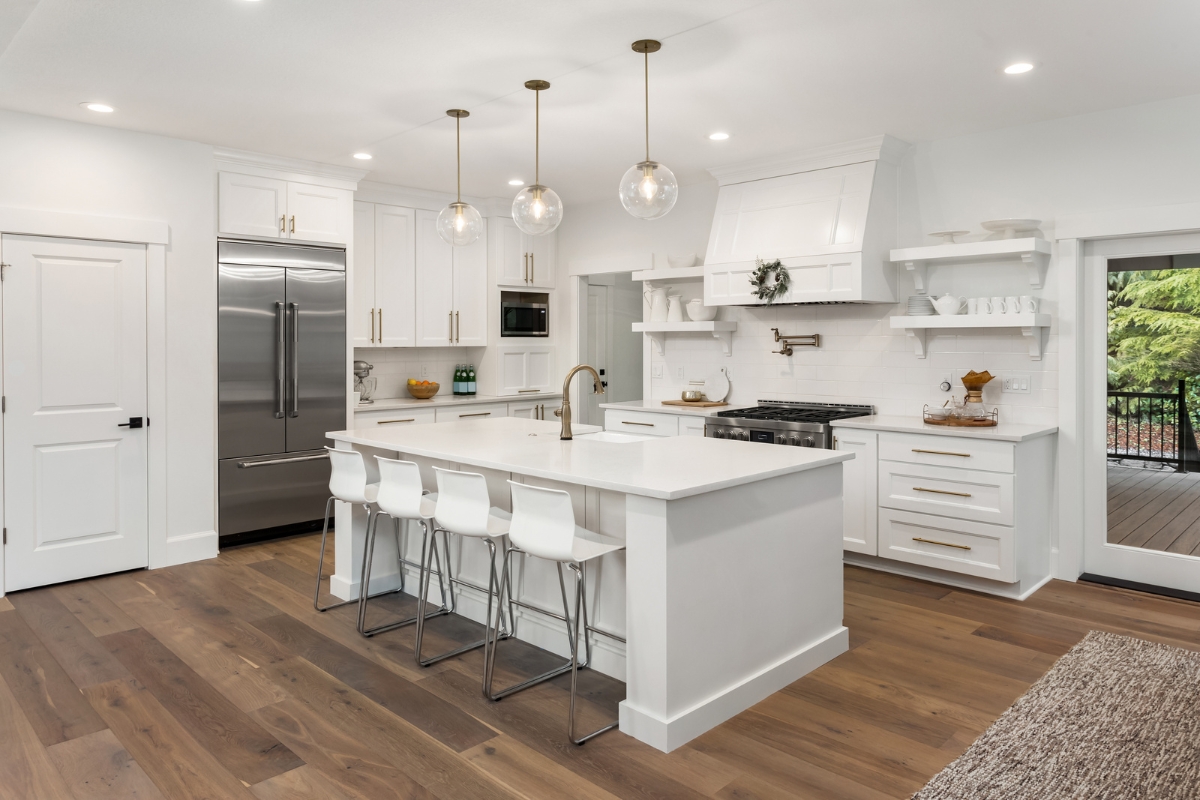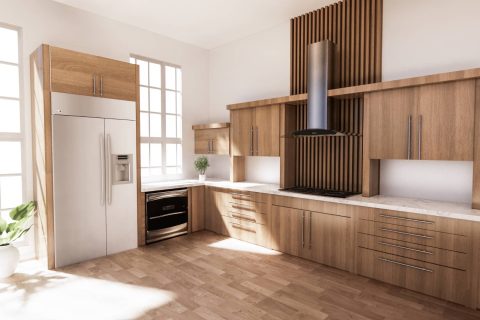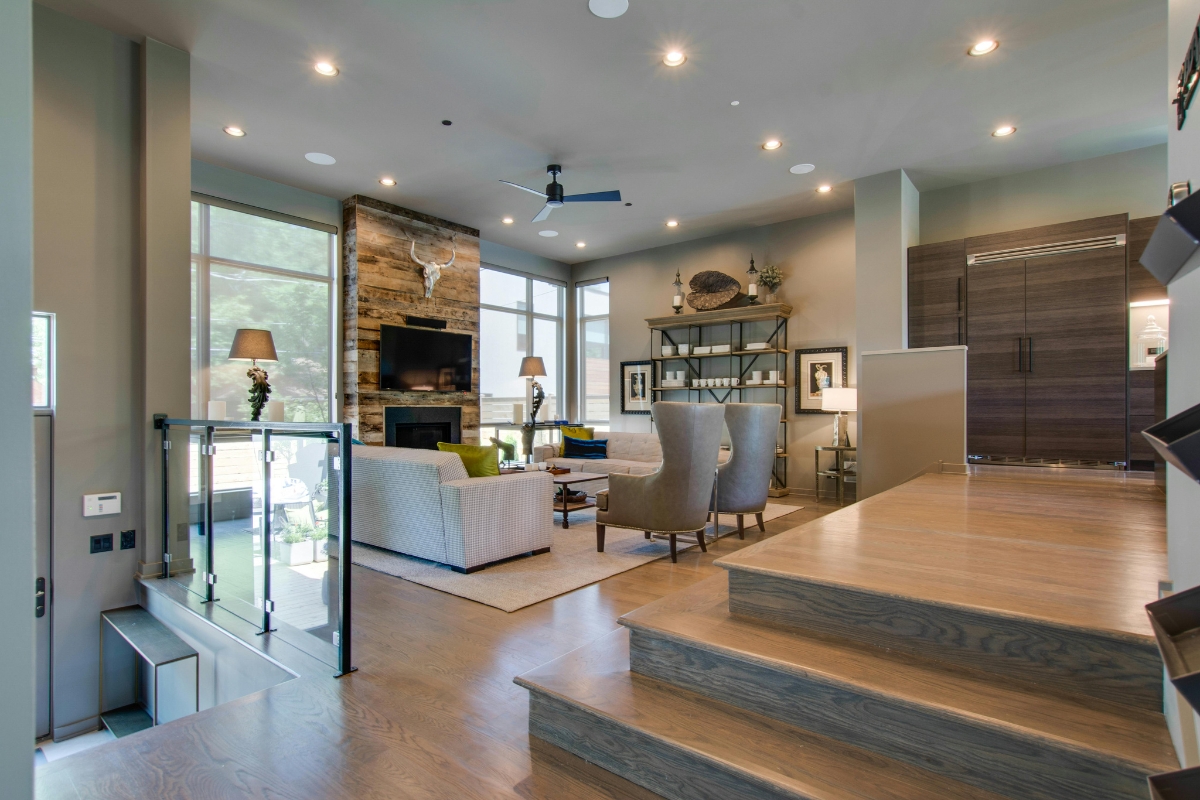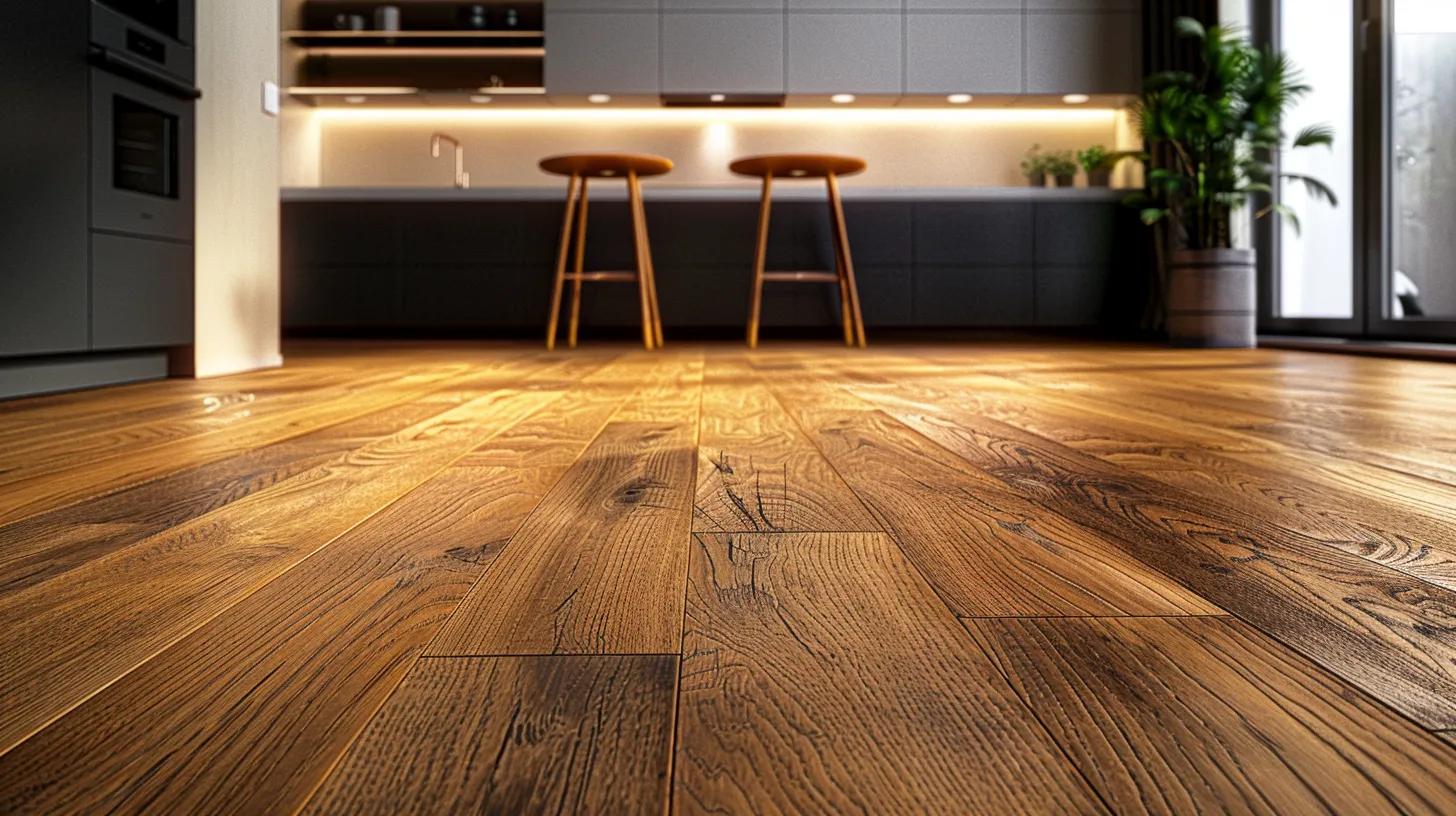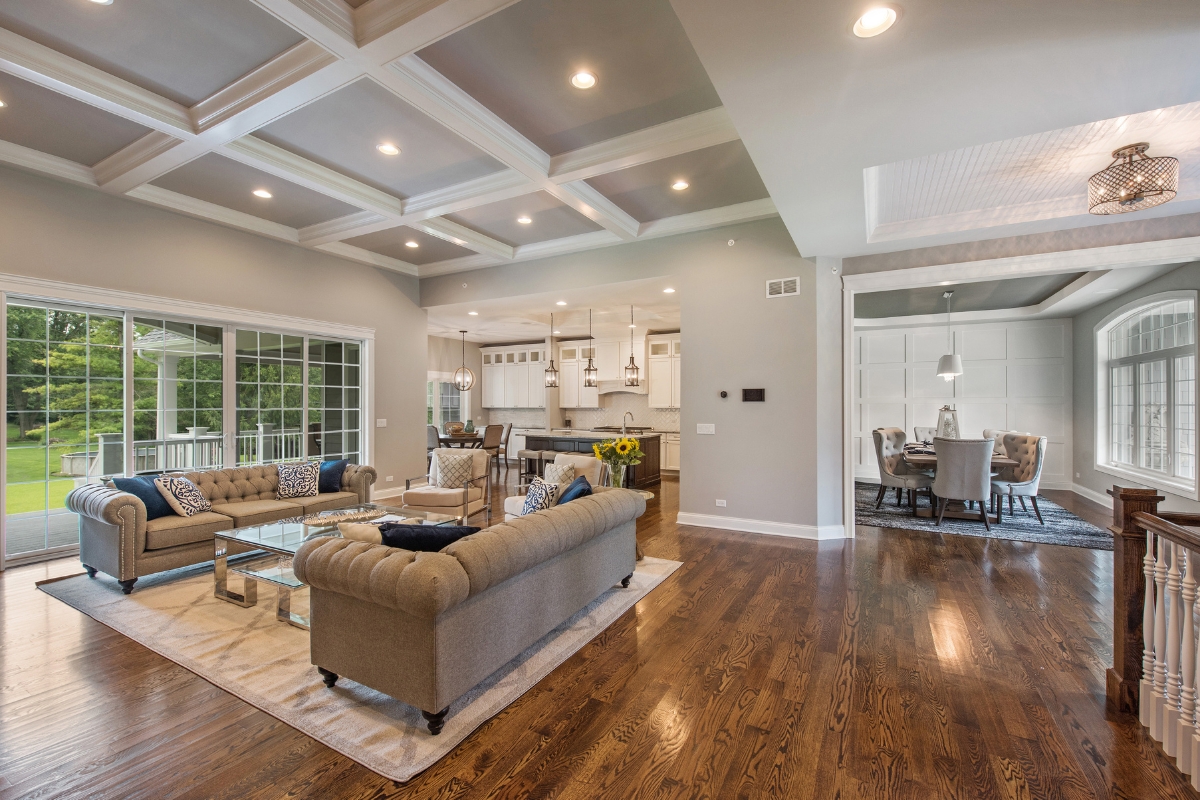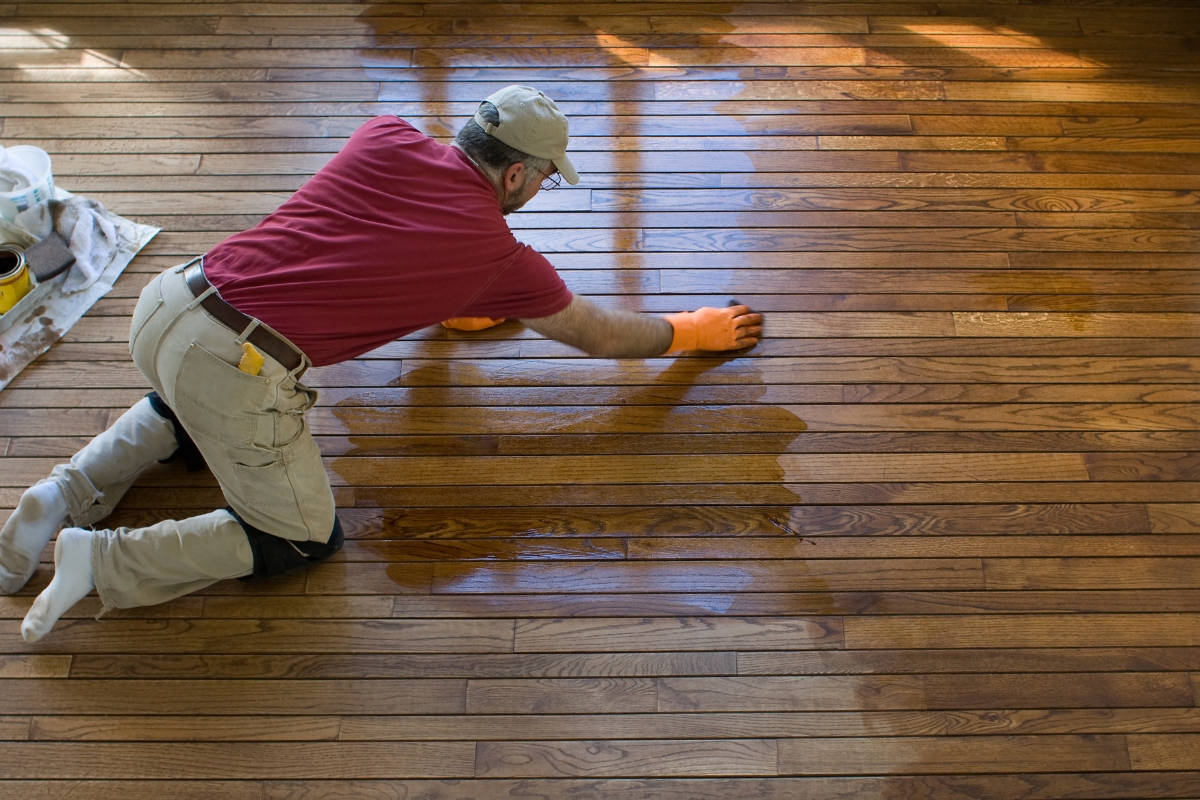Are you considering hardwood flooring for your kitchen but not sure if it’s the right choice? Well, you’re in the right place!
In this blog post, we will delve into the pros and cons of hardwood flooring specifically for kitchens. We understand that choosing the right flooring option for your kitchen is crucial as it not only affects the aesthetics but also the functionality of the space. So, let’s dive in and explore everything you need to know about hardwood flooring in kitchens.
By understanding the advantages and drawbacks of hardwood, you can make an informed choice that aligns with your preferences, lifestyle, and budget. So, let’s embark on this journey together as we explore the fascinating world of hardwood flooring in kitchens.
Hardwood Flooring in Kitchens: Yay or Nay? Uncover the Pros and Cons!
The Timeless Appeal of Hardwood Flooring
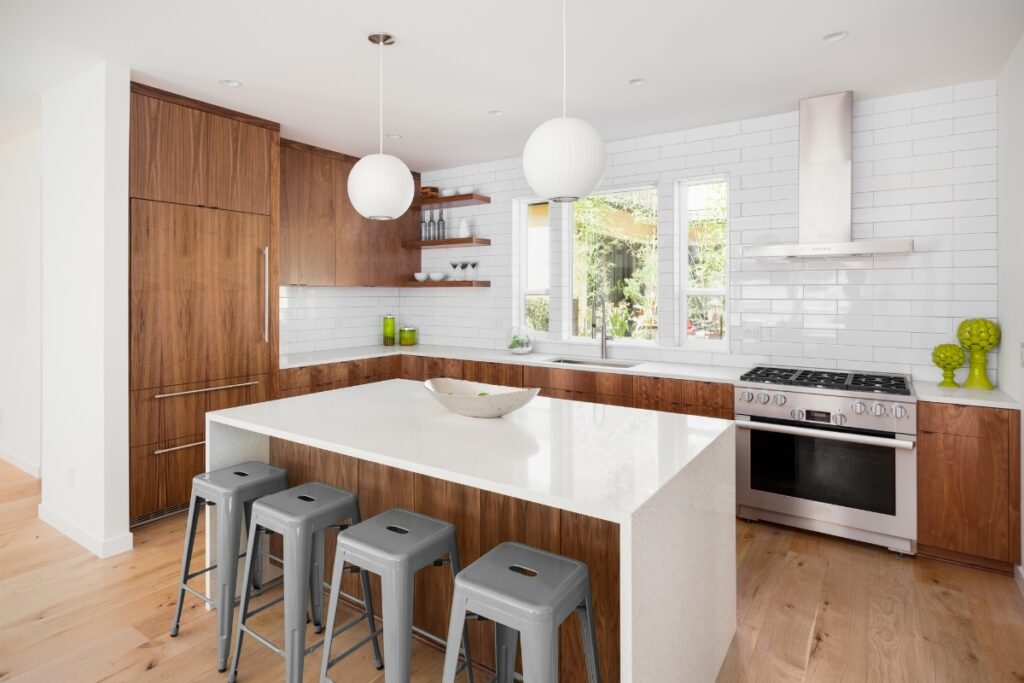
Hardwood flooring has stood the test of time and continues to be popular for homeowners, especially in kitchens. The timeless appeal of hardwood flooring is undeniable, and it offers numerous benefits that make it a preferred option for many. Let’s take a look at the numerous benefits of choosing hardwood flooring for your kitchen.
Pro: Enhancing the Aesthetic of Your Kitchen with Hardwood
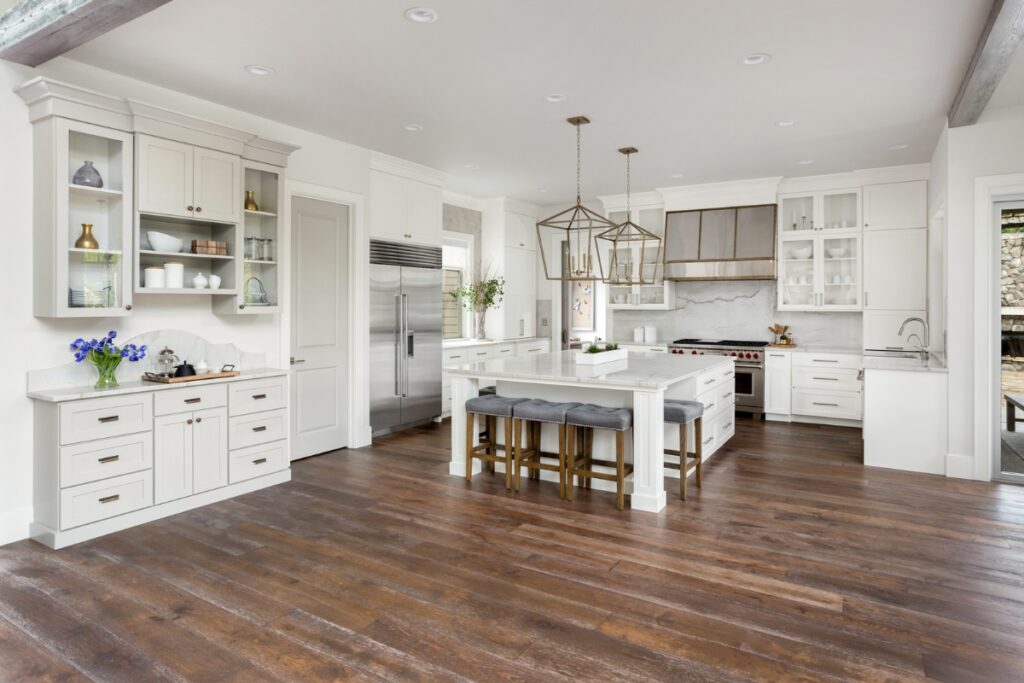
Hardwood flooring in kitchens can be an excellent choice for enhancing the aesthetic appeal of your kitchen. With its natural beauty and timeless elegance, hardwood can add warmth and character to any kitchen space. Here are some reasons why hardwood flooring is a pro when it comes to enhancing the aesthetic of your kitchen.
Firstly, hardwood flooring offers a wide range of options in terms of colors, patterns, and finishes. Whether you prefer a rustic look with wide planks and distressed finishes or a more modern and sleek design with narrow planks and a smooth finish, hardwood flooring can cater to your aesthetic preferences. You can choose from various wood species like oak, maple, cherry, or walnut, each offering a unique and beautiful appearance.
Moreover, hardwood flooring has a natural warmth and inviting feel that can instantly elevate the overall look and atmosphere of your kitchen. The rich tones and textures of hardwood create a cozy and welcoming environment that is perfect for entertaining guests or enjoying family meals. Its timeless beauty also ensures that your kitchen will never go out of style, making it a long-lasting investment.
Furthermore, hardwood flooring can seamlessly blend with other design elements in your kitchen, such as cabinets, countertops, and appliances. Whether you have a traditional, transitional, or contemporary kitchen style, hardwood flooring can complement and enhance the overall design aesthetic. Its versatility allows it to be paired with various colors and textures, creating a cohesive and visually pleasing kitchen space.
Pro: Exceptional Durability for Busy Kitchens
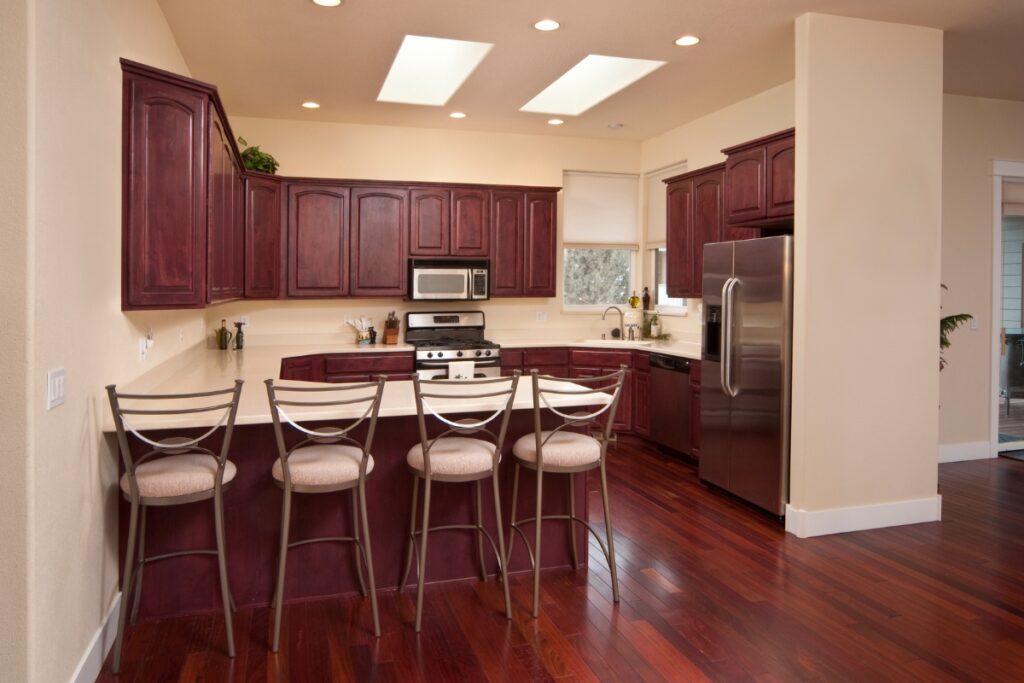
Hardwood flooring in kitchens offers incredible durability, which makes it an excellent choice for busy households. With its natural strength and resilience, hardwood floors can withstand the daily wear and tear that kitchens often endure. Whether it’s spills, stains, or heavy foot traffic, hardwood flooring proves to be a reliable and long-lasting option.
One of the key advantages of hardwood flooring in kitchens is its ability to withstand moisture. While it’s essential to wipe up spills promptly, hardwood flooring is less prone to water damage compared to other flooring materials. With proper installation and regular maintenance, hardwood floors can last for decades without warping or swelling.
Another benefit of hardwood flooring in kitchens is its resistance to stains. Unlike carpets or vinyl, hardwood is not porous, meaning it doesn’t absorb liquids or food spills. This makes cleaning a breeze, as stains can be easily wiped away without leaving any traces behind. Additionally, hardwood floors can be refinished to remove any deeper stains or scratches, further enhancing their durability.
Kitchens are often one of the busiest areas in a home, with family members constantly moving around and cooking. Hardwood floors can withstand this constant activity without showing signs of wear and tear. Its solid construction and protective sealants make it highly resistant to scratches, dents, and abrasions.
Pro: Easy Cleaning and Maintenance of Hardwood Floors
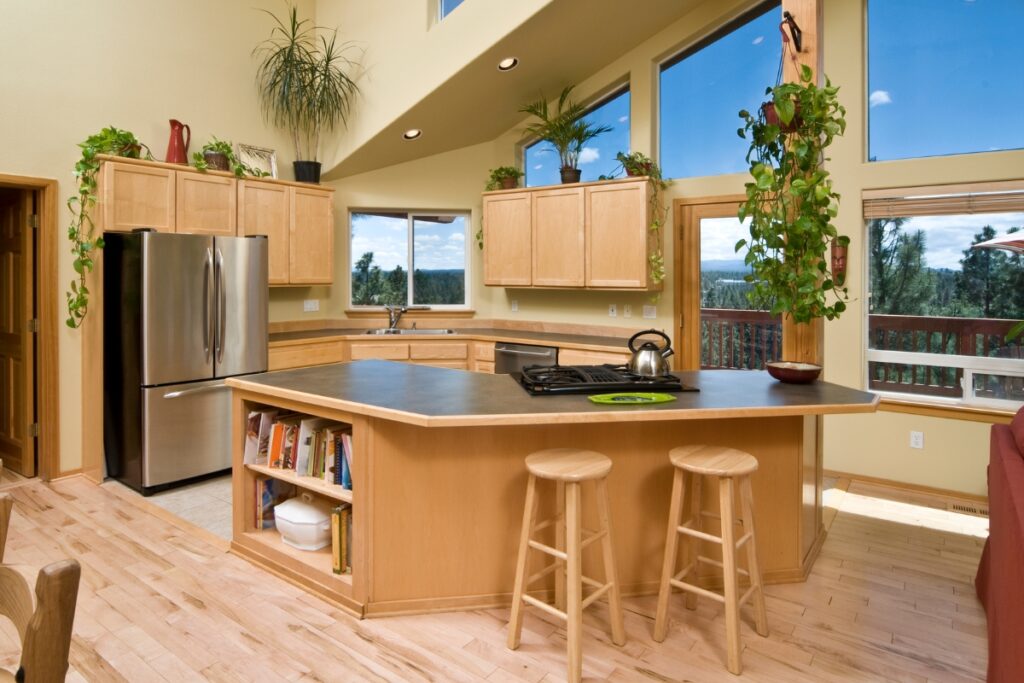
When it comes to hardwood flooring in kitchens, there are several advantages to consider. One of the biggest pros is the easy cleaning and maintenance that hardwood floors offer.
Unlike other types of flooring, hardwood flooring is relatively simple to keep clean. With regular sweeping or vacuuming to remove dirt and debris, and occasional mopping with a hardwood floor cleaner, you can keep your kitchen floors looking pristine.
The smooth surface of hardwood floors also makes them easier to clean spills and stains. Unlike carpet or tile, liquids won’t seep into the flooring material, allowing you to quickly wipe up any messes. This is especially important in a kitchen where spills and splatters are common.
In addition to being easy to clean, hardwood flooring is also low maintenance. With proper care and occasional refinishing, hardwood floors can last for decades. They are highly durable and can easily withstand scratches and dents, which make them a practical choice for high-traffic areas like kitchens.
Pro: Longevity — A Worthwhile Investment for Your Kitchen
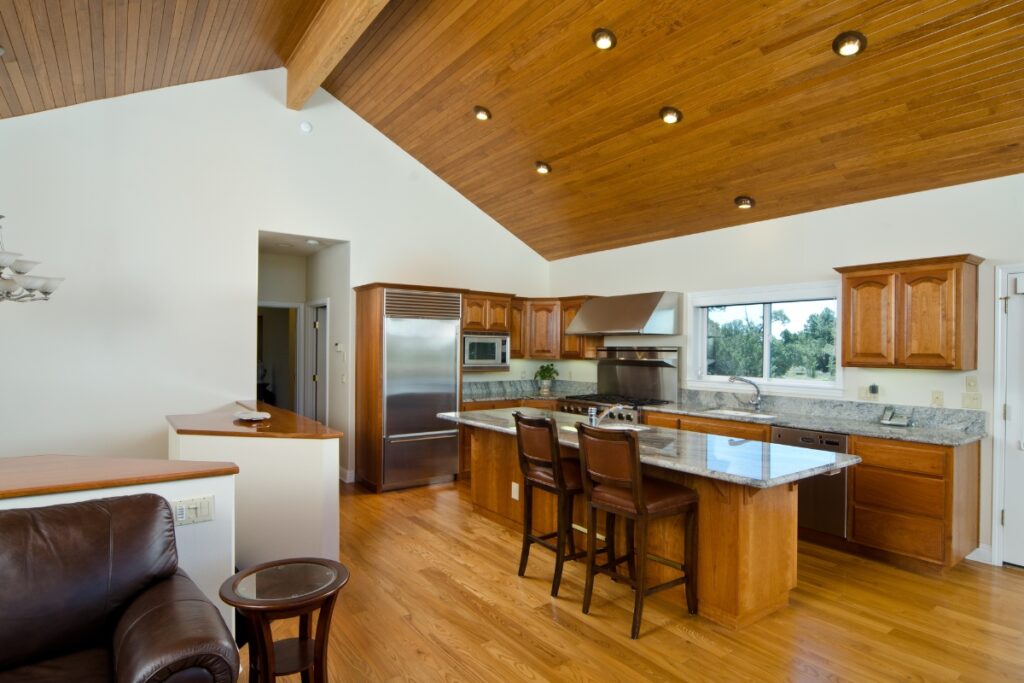
Hardwood flooring in kitchens is favored by homeowners due to its durability and timeless appeal. One of the key advantages of hardwood flooring is its longevity, making it a worthwhile investment for your kitchen.
When it comes to kitchen renovations, homeowners often seek materials that can withstand the test of time. Hardwood flooring fits the bill perfectly, as it is known to last a long time, especially with the right care and maintenance. When handled properly, hardwood floors can last for decades, which makes this type of flooring a cost-effective choice in the long run.
Unlike other types of flooring that may require regular replacements or repairs, hardwood floors can handle everyday wear and tear easily. This is particularly important in kitchens, where spills, stains, and scratches are common occurrences. With hardwood flooring, you can rest assured that your kitchen floor will continue to look beautiful and withstand the demands of daily life.
In addition to its durability, hardwood flooring offers timeless elegance and versatility. It comes in a wide range of species, finishes, and colors, which makes it easy for you to find the best match for your kitchen’s aesthetic. Whether you prefer a rustic farmhouse look or a sleek modern design, hardwood flooring can complement any style.
Furthermore, hardwood flooring is known for its ability to add value to a home. When it comes time to sell your property, hardwood floors can be an attractive selling point for potential buyers. Many homebuyers consider hardwood flooring to be a desirable feature, as it is associated with quality and sophistication.
To ensure the longevity of your hardwood flooring in the kitchen, proper maintenance is crucial. Regular sweeping or vacuuming, along with occasional deep cleaning, will help keep your floors looking their best. It is also important to promptly clean up any spills to prevent damage to the wood.
Con: Vulnerability to Moisture and Humidity
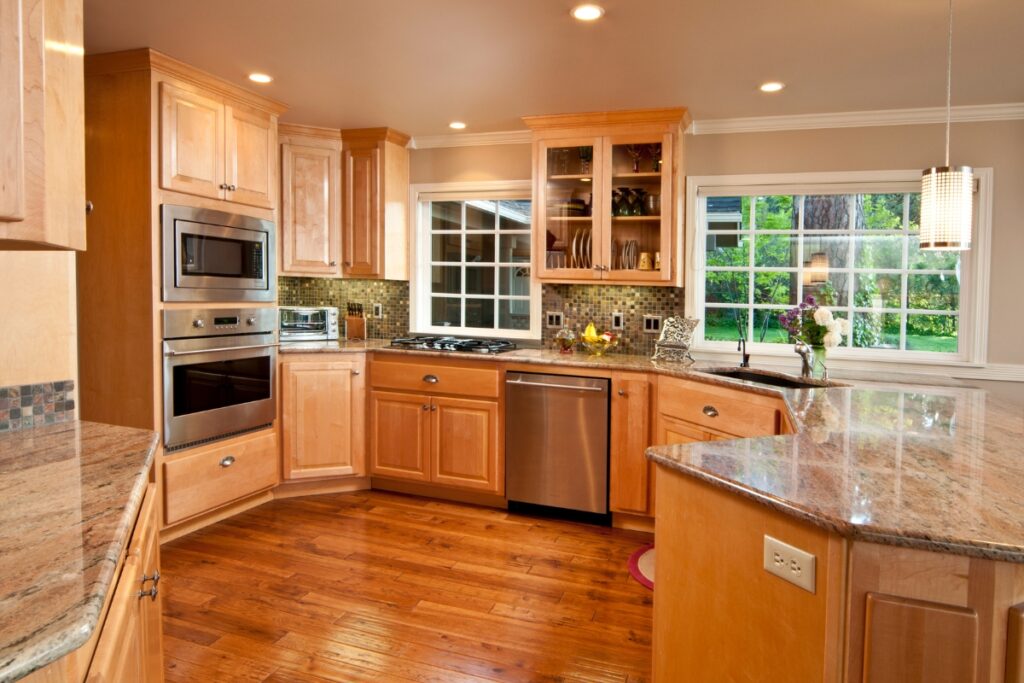
One of the drawbacks of using hardwood flooring in kitchens is its vulnerability to moisture and humidity. While hardwood floors can add a touch of elegance and warmth to any kitchen, they require extra care and maintenance in environments where moisture levels are high.
Moisture and humidity can cause hardwood flooring to warp, buckle, or cup. This is because wood is a natural material that absorbs and releases moisture depending on its surrounding conditions. In a kitchen, where spills and splashes are common, the chances of moisture seeping into the hardwood floor are higher.
To mitigate the risks associated with moisture and humidity, it is essential to take preventative measures. Installing a moisture barrier beneath the hardwood flooring can provide an extra layer of protection. This barrier acts as a shield against any moisture that may come in contact with the floor, preventing it from penetrating the wood.
Con: Dealing with Scratches and Dents on Hardwood Flooring
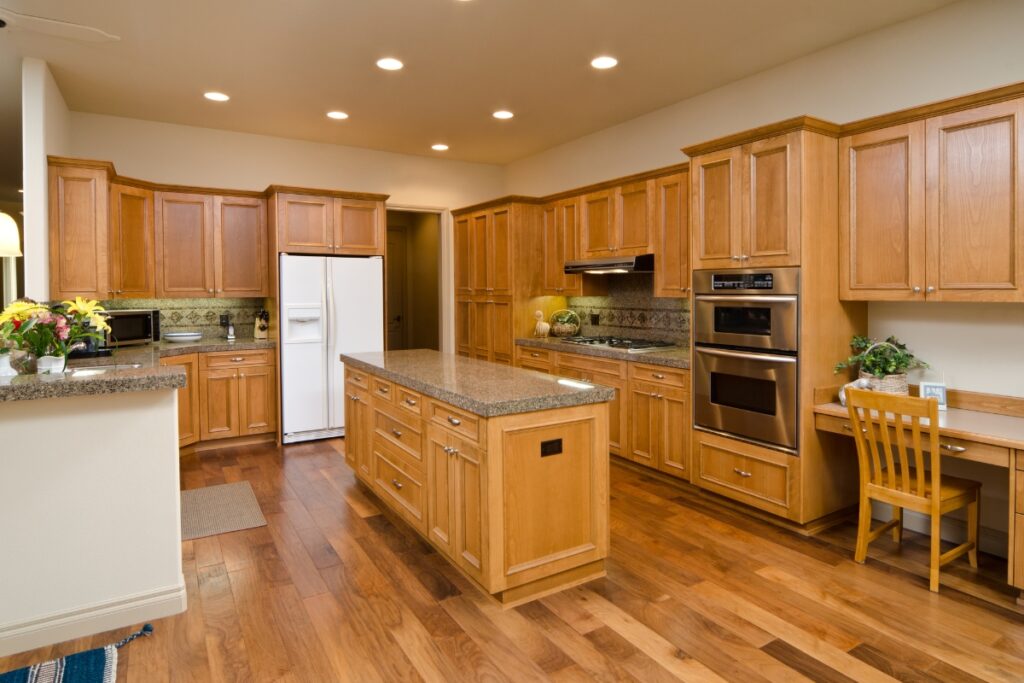
Hardwood flooring is an easy choice for kitchens due to its durability and timeless appeal. However, like any other type of flooring, it is not without its drawbacks. One of the main concerns when it comes to hardwood flooring in kitchens is the issue of scratches and dents.
While hardwood flooring is generally resistant to scratches and dents, it is not completely immune to them. The kitchen is a high-traffic area, and accidents are bound to happen. With heavy pots, pans, and sharp utensils constantly in use, it’s important to know how to deal with scratches and dents effectively.
When it comes to minor scratches on hardwood flooring, there are a few DIY solutions you can try. One option is to use a hardwood floor cleaner and a soft cloth to gently buff out the scratch. For deeper scratches, you may need to use a wood touch-up pen or stain marker to fill in the damaged area. Be sure to match the color as closely as possible to achieve a seamless finish.
For more severe scratches or dents that cannot be easily repaired, it may be necessary to replace the affected boards. This can be a time-consuming and costly process, especially if you have a large kitchen area. It’s recommended to consult with a professional to assess the damage and determine the best course of action.
Prevention is always the best approach when it comes to scratches and dents on hardwood flooring. Using rugs or mats in high-traffic areas can help protect the floor from scratches caused by dirt and debris. Felt pads should also be placed under furniture legs to prevent them from scratching the surface when moved.
Regular maintenance is key to keeping hardwood flooring in pristine condition. Sweeping or vacuuming the floor regularly will help remove any abrasive particles that can cause scratches. Cleaning up spills immediately is crucial to prevent moisture from seeping into the wood, which can lead to warping and damage.
Con: Considering the Cost of Hardwood Flooring
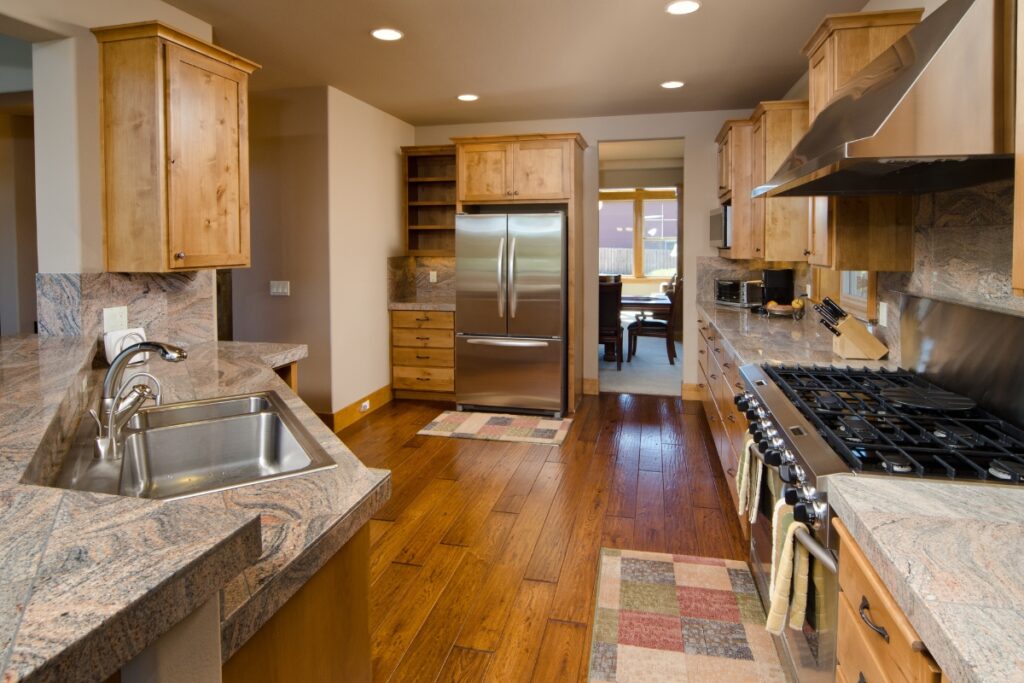
One of the main drawbacks of hardwood flooring is its cost. Compared to other flooring options such as laminate or vinyl, hardwood can be significantly more expensive. The price of hardwood flooring can vary depending on factors such as the type of wood, the quality, and the installation method. It is crucial to set a budget and determine if hardwood flooring is a feasible option for your kitchen renovation.
However, it is important to note that hardwood flooring can be an excellent long-term investment. Unlike other flooring materials that may need to be replaced after a few years, hardwood flooring is known for its durability and longevity. With proper care and maintenance, hardwood floors can last for decades, making them a cost-effective choice in the long run.
Additionally, hardwood flooring adds value to your home. It is a sought-after feature for potential buyers and can increase the resale value of your property. If you plan on selling your home in the future, investing in hardwood flooring for your kitchen can be a wise decision.
Conclusion: Weighing the Pros and Cons of Hardwood Flooring in Kitchens
Hardwood flooring in kitchens offers numerous advantages, including its timeless appeal, durability, and added value to your home. However, it’s important to consider the potential drawbacks, such as water damage and the need for regular maintenance. By weighing the pros and cons, you can make an informed decision on whether hardwood flooring is the right choice for your kitchen.
If you’re interested in installing quality hardwood floors for your kitchen and home, choose Diaz Hardwood Floors!
Our reliable hardwood refinishing and repair services are guaranteed to keep your hardwood floors in top conditon, from installation to maintenance. Get your project started by requesting a free quote on our website or giving us a call 404-791-0444 today!

